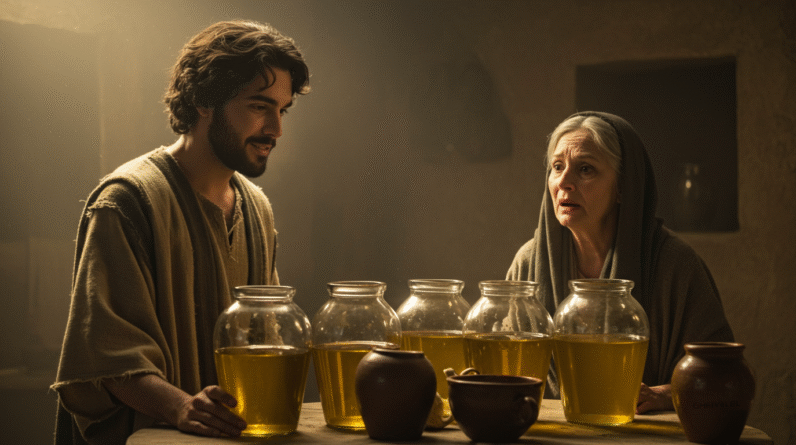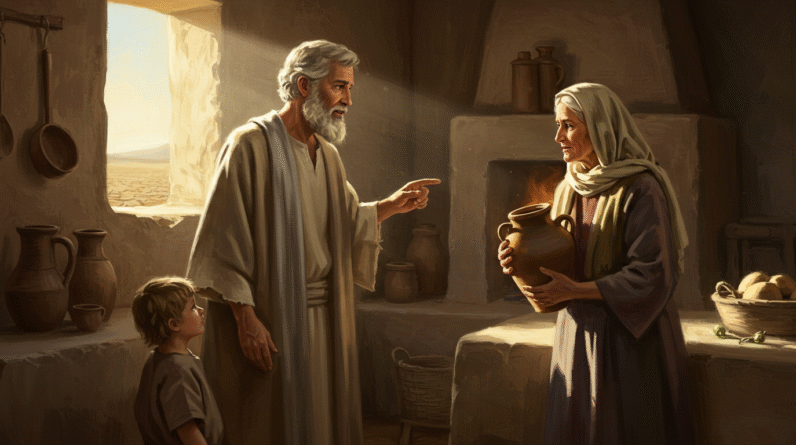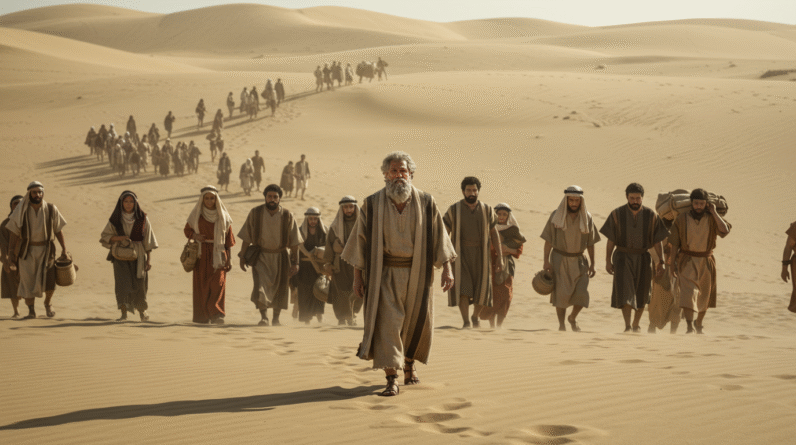Explore the courage and leadership of Deborah in biblical history, a judge and prophetess who led Israel with wisdom and faith, challenging societal norms.
Deborah: A Judge’s Courage and Leadership in Biblical History

Introduction
Deborah stands as a beacon of strength and wisdom in biblical history, noted for her role as both a judge and a prophetess. Her remarkable leadership during a tumultuous period in the narrative of Israel showcases the capabilities and influence a faithful servant of God can possess. In the Book of Judges, Deborah’s story unfolds with profound bravery and decisive action, demonstrating her commitment to God’s will. A key verse that encapsulates her significant role is Judges 4:4-7, which tells of her prophecy and leadership gracing the people of Israel.
Historical Background
Deborah’s narrative emerges during a time referred to as the period of the Judges, a chaotic era following the conquest of Canaan but before the establishment of the monarchy. It was around the 12th century BC, a time characterized by social upheaval and frequent conflicts as the Israelites sought to settle in the Promised Land. Without a central government, Israel was a collection of tribes that relied on judges like Deborah to provide leadership and guidance. The people often turned away from God, leading to their oppression by various neighboring nations. Deborah’s story involved key figures like Barak and Sisera and took place primarily in the regions of Ephraim and Canaan, emphasizing her vital role in this critical historical context.
God’s Call and Mission
Deborah’s calling stands out as unique in the narrative of the Judges. Unlike many biblical figures who received their call through miraculous signs or divine interventions, Deborah’s authority was intrinsic, rooted deeply in her wisdom and spiritual insight. Known as a prophetess, her primary mission was to guide the Israelites back to God and deliver them from the oppression of the Canaanite king, Jabin. Her acceptance of this role was immediate and earnest, reflecting her complete trust in God’s plans for her people. Deborah’s assurance and foresight as she summoned Barak to lead the army against Sisera highlight her steadfast commitment to her divine mission, reinforcing her as a pivotal leader Judges 4:6-9.
Key Events and Prophecies
The narrative of Deborah is marked by several pivotal events, starting with her summoning of Barak to lead an attack against Sisera’s forces. This strategic military decision not only suggests her insight but also underlines her influence in rallying troops for battle. Deborah prophesied victory over Sisera, but with a twist: the honor of killing Sisera would not belong to Barak, but to a woman, a prophecy fulfilled by Jael, who killed Sisera with a tent peg, further augmenting the narrative with unexpected female heroism Judges 4:21. Her leadership and prophecy underscored divine intervention in Israel’s victories and highlighted the unexpected ways God’s purposes can unfold.
Challenges and Opposition
Despite her established authority, Deborah faced the challenge of leading in a male-dominated society. Her role required navigating complex social dynamics and addressing military and spiritual recalcitrance. Notably, Barak’s initial reluctance to go into battle without Deborah’s presence reflects societal hesitations and the heavy reliance on her leadership. This situation did not merely present personal opposition but became a testament to her strength. By insisting on accompanying Barak, Deborah reaffirmed her unwavering faith and conviction, emphasizing her readiness to step into traditionally male roles to fulfill God’s commands.
Legacy and Impact
Deborah’s legacy is indelibly etched in the spiritual and historical fabric of Israel. As one of the only female judges mentioned in the Bible, her story challenges and expands the narrative of leadership roles available to women in biblical history. She is celebrated in Deborah’s Song, a victory hymn found in Judges 5, which not only commemorates the triumph over Sisera but also stands as one of the oldest pieces of Hebrew poetry. Deborah’s story transcends her era, inspiring various discussions on leadership, faith, and gender roles in society. Her name reappears in later interpretations and reflections on Israel’s history, symbolizing wisdom and courage.
Lessons from Deborah
Deborah’s life and actions offer several profound lessons relevant to believers today. Her story speaks to the strength found in faith and the empowerment that comes from heeding God’s call. Courage and leadership, often accompanied by humility and a keen sense of justice, stand as pillars erected through her narrative. Deborah exemplifies how determination, combined with spiritual wisdom, can guide a community through trials. Moreover, her example encourages embracing one’s gifts and strengths to lead fearlessly. Her narrative asks the reader to consider how trust in divine purpose can lead to victory, even against overwhelming odds.
Conclusion
Deborah remains an inspiring figure in biblical history, whose story of courage, faith, and leadership challenges us to reflect on the roles we play within our communities. Her journey reminds us that true power lies in trusting God and embracing the missions set before us, no matter how daunting. As you ponder Deborah’s tale, consider what it means to lead with wisdom and compassion in today’s world. Are you ready to step into your purpose and lead with courage?
Acknowledgment: All Bible verses referenced in this article were accessed via Bible Gateway (or Bible Hub)







